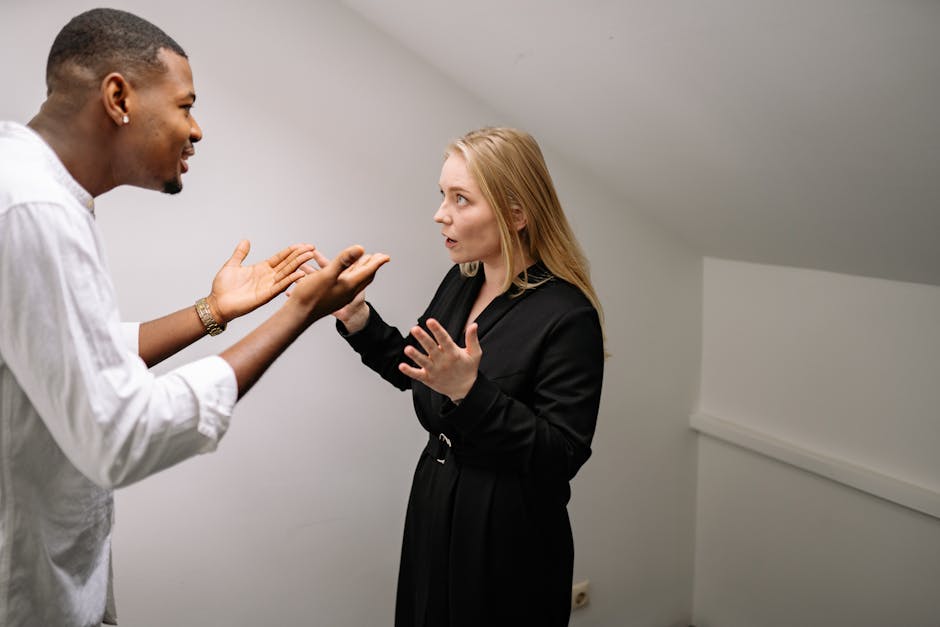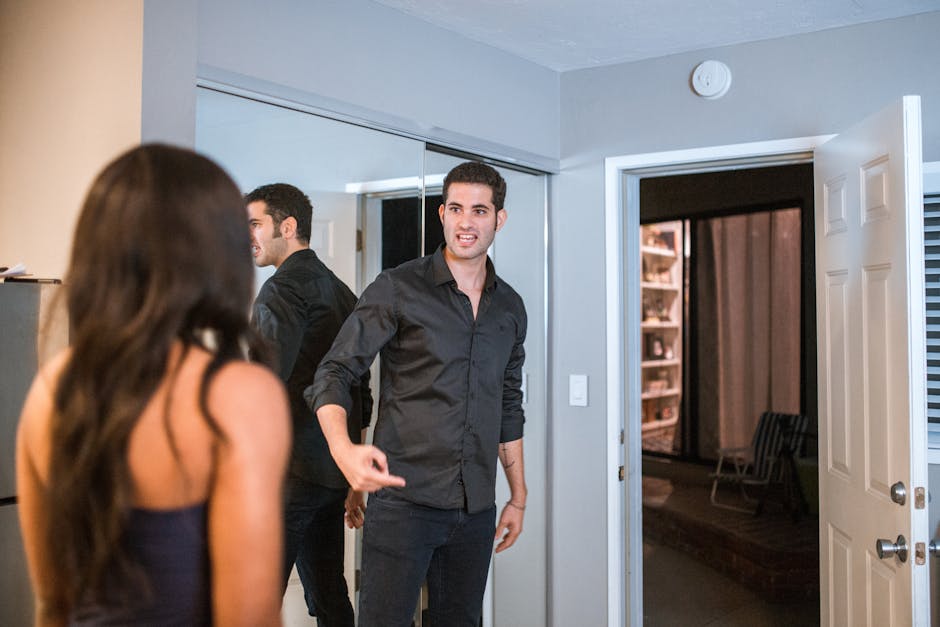Improving your relationship starts with learning how to handle conflicts better. Disagreements are inevitable, but they don’t have to be destructive. In fact, when handled well, conflicts can bring you closer together and strengthen your bond. So, how do you turn arguments into opportunities for growth? Keep reading to discover practical strategies for resolving conflicts in a way that fosters understanding, respect, and love.
Key Takeaways
- Conflict is a natural part of any relationship and can be healthy if addressed constructively.
- Building trust, empathy, and communication skills are essential for resolving disagreements.
- Using strategies like active listening, “I” statements, and humor can help diffuse tension.
- Managing emotions and avoiding unhealthy behaviors are critical for long-term success.
Understanding Conflict in Relationships
The Role of Conflict in a Healthy Relationship
Conflict isn’t the villain it’s often made out to be. It’s more like a fire—dangerous if uncontrolled, but essential for warmth and light when managed properly. Disagreements allow you to express your needs, understand your partner’s perspective, and grow together. Without conflict, relationships can become stagnant or superficial.
Common Causes of Conflict Between Partners
Most conflicts stem from unmet expectations, miscommunication, or differences in values. For example, one partner might feel unappreciated because the other doesn’t express gratitude often. Or perhaps you disagree on how to spend money or raise children. Even small things, like leaving dirty dishes in the sink, can spark arguments if underlying issues aren’t addressed.
The Importance of Addressing Conflict Constructively
Ignoring problems doesn’t make them disappear—it’s like sweeping dirt under the rug. Eventually, it piles up and becomes impossible to ignore. Addressing conflicts constructively helps you clear the air, rebuild trust, and prevent resentment from festering. Plus, it shows your partner that you care enough to work through challenges together.

The Foundations of Effective Conflict Resolution
Building Trust and Emotional Safety
Trust is the bedrock of any relationship. Without it, even minor disagreements can feel like personal attacks. Create a safe space where both of you feel comfortable sharing your thoughts and feelings without fear of judgment or retaliation.
The Role of Empathy in Resolving Disagreements
Empathy is your secret weapon in conflict resolution. Try to step into your partner’s shoes and see the world through their eyes. Understanding their emotions and motivations can help you respond with compassion instead of defensiveness.
The Importance of Active Listening
Listening isn’t just about hearing words; it’s about understanding the message behind them. Practice active listening by giving your full attention, nodding, and paraphrasing what your partner says. This shows that you value their perspective and are genuinely trying to understand.

Strategies for Better Conflict Resolution
Directly Expressing Thoughts and Feelings
Using “I” Statements to Avoid Blame
Instead of saying, “You never help around the house,” try, “I feel overwhelmed when I have to do all the chores alone.” This shifts the focus from blame to how the situation affects you, making your partner less likely to get defensive.
Being Clear and Specific About Concerns
Vague complaints like “You’re always late” can lead to misunderstandings. Be specific: “I feel frustrated when you’re late for dinner because it feels like our time together isn’t a priority.”
Avoiding Blame and Criticism
Focusing on the Issue, Not the Person
Attack the problem, not your partner. For example, instead of saying, “You’re so irresponsible,” try, “I’m worried about how we’re managing our finances.”
Recognizing and Managing Defensive Reactions
It’s natural to feel defensive during an argument, but try to stay open-minded. Take a deep breath and remind yourself that your partner isn’t the enemy—they’re your teammate.
Sticking to One Argument at a Time
Avoiding Bringing Up Past Grievances
Dragging up old issues is like reopening old wounds. Focus on the current problem and resist the urge to say, “This is just like the time you…”
Staying Focused on the Current Issue
If the argument starts to spiral, gently steer it back on track. For instance, “Let’s focus on how we can solve this issue right now.”

Communication as the Key to Resolving Conflict
Practicing Open and Honest Communication
Honesty is the glue that holds relationships together. Share your thoughts and feelings openly, even if they’re uncomfortable. This builds trust and prevents misunderstandings.
Staying Open-Minded During Discussions
Considering Your Partner’s Perspective
Ask yourself, “What might they be feeling right now?” This simple question can shift your mindset from frustration to curiosity.
Avoiding Assumptions About Their Intentions
Don’t jump to conclusions. Instead of thinking, “They’re doing this to annoy me,” consider that they might have a different reason for their actions.
Using Humor to Diffuse Tension
Lightening the Mood Without Dismissing Concerns
A well-timed joke or playful comment can break the ice during a heated argument. Just make sure it’s not at your partner’s expense.
Recognizing When Humor Is Appropriate
If the issue is serious, humor might come across as dismissive. Use it sparingly and only when it feels natural.

Managing Emotions During Conflict
Staying Calm and Composed
Taking Breaks When Emotions Run High
If you feel like you’re about to explode, take a timeout. A short walk or deep breathing exercise can help you cool down and think more clearly.
Practicing Mindfulness Techniques
Mindfulness can help you stay present and avoid overreacting. Try focusing on your breath or repeating a calming mantra like, “This too shall pass.”
Avoiding Overreacting to Minor Issues
Learning to Let Go of Small Annoyances
Not every battle is worth fighting. Ask yourself, “Will this matter a week from now?” If the answer is no, let it go.
Focusing on the Bigger Picture
Remember why you’re in this relationship. Your love and shared goals are more important than who left the toothpaste cap off.
Assuming Good Intentions From Your Partner
Give your partner the benefit of the doubt. Instead of assuming they’re being thoughtless, consider that they might be stressed or distracted.
Healthy and Unhealthy Ways of Managing Conflict
Identifying Unhealthy Conflict Behaviors
Stonewalling and Avoidance
Shutting down or avoiding the issue won’t solve anything. It’s like ignoring a leaky faucet—it only gets worse over time.
Escalation and Aggression
Yelling, name-calling, or slamming doors only adds fuel to the fire. Stay calm and focus on finding a solution.
Encouraging Healthy Conflict Resolution Habits
Compromising and Finding Common Ground
Meet each other halfway. For example, if one of you wants to save money and the other wants to splurge, find a middle ground that satisfies both.
Seeking Solutions That Benefit Both Partners
Aim for win-win outcomes. Instead of thinking, “How can I get my way?” ask, “How can we both be happy?”

Tips for Long-Term Conflict Resolution Success
Regularly Checking In With Your Partner
Schedule regular check-ins to discuss how you’re feeling and address any brewing issues. This proactive approach can prevent small problems from snowballing.
Learning From Past Conflicts to Improve Future Interactions
Reflect on past arguments and identify what worked and what didn’t. Use these insights to handle future disagreements more effectively.
Seeking Professional Help When Necessary
Couples Therapy or Counseling
If conflicts feel overwhelming, consider seeking help from a professional. A therapist can provide tools and strategies tailored to your unique situation. Learn more about how family therapy addresses relational dynamics.
Conflict Resolution Workshops or Resources
Workshops or online resources can also be helpful. They offer practical tips and exercises to improve your skills. Check out this guide to conflict resolution skills for more ideas.
Improving your relationship through better conflict resolution takes effort, but the rewards are worth it. By addressing disagreements constructively, you can build a stronger, more loving connection. So the next time you and your partner hit a bump in the road, remember: it’s not about avoiding conflict—it’s about learning to navigate it together. For more tips on fostering healthy relationships, check out this resource on nurturing relationships for self-care.
FAQ: Unlocking Harmony – Improving Your Relationship Through Better Conflict Resolution
What is conflict resolution, and why is it important in relationships?
Conflict resolution is the process of addressing and resolving disagreements in a constructive way. It is essential in relationships as it fosters understanding, strengthens bonds, and prevents minor issues from escalating into larger problems.
What are some common causes of conflict in relationships?
Common causes include miscommunication, unmet expectations, financial stress, differing values, or lack of quality time together. Recognizing these triggers can help address issues proactively.
How can I improve communication during a disagreement?
Focus on active listening, use ‘I’ statements to express feelings without blame, and avoid interrupting. Clear and respectful communication is key to resolving conflicts effectively.
What role does empathy play in conflict resolution?
Empathy helps you understand your partner’s perspective and emotions. By putting yourself in their shoes, you can approach conflicts with compassion, making it easier to find common ground.
Are there specific techniques to de-escalate heated arguments?
Yes, taking a timeout, practicing deep breathing, or agreeing to revisit the discussion later can help. Staying calm and composed is crucial to preventing arguments from spiraling out of control.
How can we prevent recurring conflicts in our relationship?
Identify patterns in recurring conflicts and address the root causes. Establish healthy boundaries, communicate openly, and work together to find sustainable solutions.
What should I do if my partner avoids conflict altogether?
Gently encourage open dialogue and create a safe space for discussion. Let them know their feelings are valid and that resolving conflicts can strengthen your relationship over time.
Can professional help, like couples therapy, improve conflict resolution?
Absolutely. A trained therapist can provide tools and strategies to navigate conflicts, improve communication, and foster a healthier relationship dynamic.
How can I ensure conflicts don’t damage our relationship long-term?
Focus on resolving issues rather than ‘winning’ arguments. Approach conflicts as opportunities to grow together, and always prioritize mutual respect and understanding.
Is it normal to have conflicts in a healthy relationship?
Yes, conflicts are a natural part of any relationship. The key is how you handle them. Healthy conflict resolution can actually strengthen your bond and deepen your connection.



